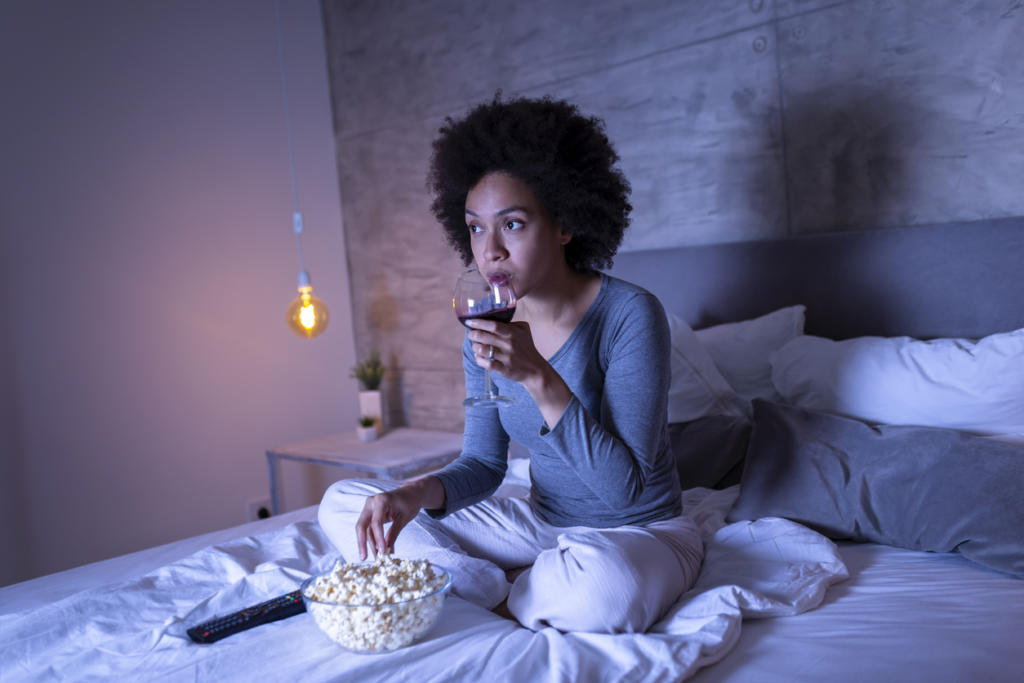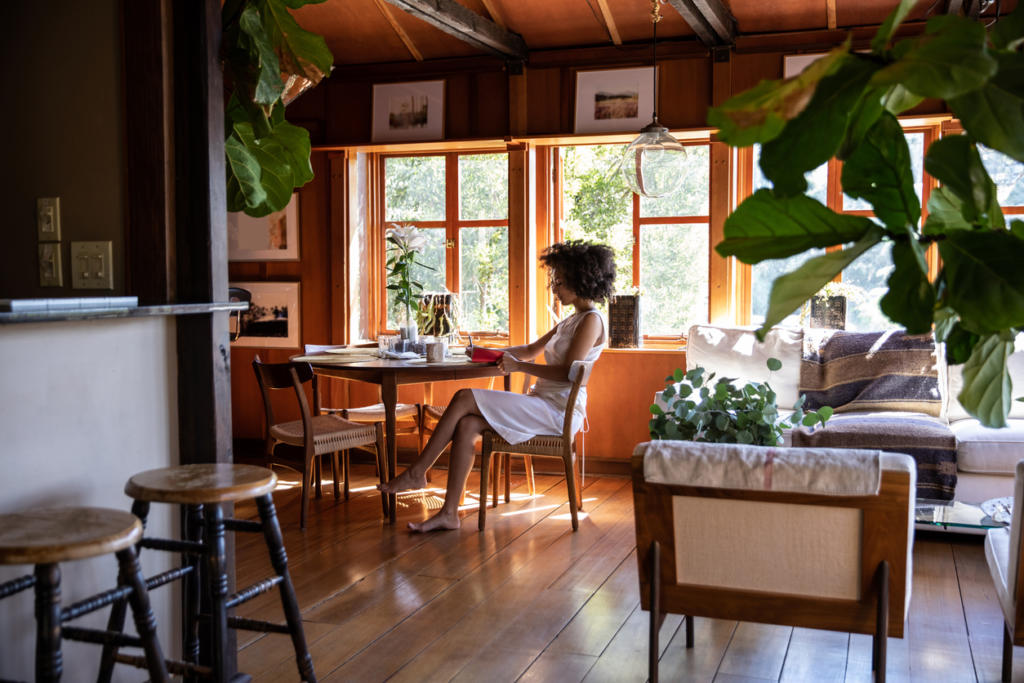Six Steps to Sleep
Six, seven, eight, four, three, twelve – if you graphed my recent sleep in hours-per-night there would be no trend or mode but the range would be vast.
Sleep is a new problem for me, I’ve always been a 10:30 p.m. to 6:30 a.m. sleeper. I can fall asleep with the TV on, after a couple glasses of wine and get the same amount of sleep as I do when I fall asleep to a sound machine after a glass of water. Not to brag.
Recently, I’ve found my body reacting differently to my bedroom, my bed and my blankets. In the beginning of our current isolation period, bed was a solace for me – my mind was quick to fall asleep and escape reality for up to 10 hours each night. “It’s okay,” I remember thinking. “Your body is overdoing it and needs these extra hours, take it easy.”
Then, a series of staying-up-too-late-watching-movies and my dog being sick nights changed everything. Even now with a healthy dog and forcing myself into bed at a reasonable time, I am awake by 3 a.m. and can’t get back to sleep.
Even though I haven’t cracked the code on getting a full night sleep yet – I found some facts, tips and tricks that are helping.
Get Up and Out of Bed
For insomniacs, this is the biggest tip. Dr. Melinda Jackson, a professor at Australia’s Monash University explains that the number of people with insomnia has exponentially grown since the beginning of isolation orders. New insomnia can be a result of heightened anxiety and depression which should be addressed. However, a good practice for new insomniacs is to get up and out of bed.
She suggests getting up at the same time every morning – routine is important. Schedule “Wake Up” time, “Wind Down” time and “Bedtime.” Be consistent with each of these routines to train your body to sleep.
Stay Active
Simply going for an outdoor walk each day can improve your sleep. This isn’t about the unrealistic expectation for everyone to use this time to be their fittest, healthiest and most active – this is about using up your body’s energy and reminding your brain to be on a schedule.
Watch What You Consume

Stay at home orders have boosted alcohol sales and consumption 55 percent in the U.S. More so, 30 percent of adults admit to drinking while working from home and drinking in excess out of boredom. Some recent research shows some adults are using alcohol to differentiate “work day” and “evening” because there are few other ways to distinguish the two.
Not only does this lead to an unhealthy relationship with alcohol, but alcohol consumption late at night is proven to affect both quantity and quality of sleep. With that in mind, limit your intake of alcohol to one glass and be sure to finish it well before bedtime.
Bed is for Sleep
For us apartment dwellers, it’s important to use each square foot of space in our homes. Without a lot of space to work with, we have to get creative about where we’ll work, where we’ll exercise, eat and relax. Experts recommend having a seperate space for each activity throughout your day so your mind forms habits and routines much like when you were able to leave the house.
For those of us without the space to choose a different room for each activity, we’re forced to double up. The most important thing to remember is to keep it all out of the bedroom. Your bed is for sleep and sleep alone – working, eating or watching TV in this space will affect sleep patterns.
Processing Information
Another sleep disorder that’s affecting more and more of us is called “Fragmented Sleep.” This happens when you have no problem following your night time routine and falling asleep at a reasonable hour, but you wake up periodically throughout the night.
The brain processes information during sleep, and once our routines are disrupted, it throws off the entire sleep process Dr. Brandon Peters-Mathews, a sleep doctor at Virginia Mason Medical Center explains. If you have work, familial or financial stressors right now it’s possible that those will cause more nighttime awakenings.
To combat this added stress, therapists recommend talking to loved ones and reducing media exposure in the evening. Give your brain a break and turn your evening into a time of fun, relaxation and happy thoughts.
Reminders Help
 I’ve never been a journal person, nor have I ever cared too much about essential oils that promote sleep. However, during this isolation period I’ve found comfort in “doing my best” and following wellness guides that call for reminders and routines to stay comfortable and mindful of what’s around you. I use essential oils now to remind my brain to unwind. I use a gratitude journal right before I go to bed to remind myself of all the good that’s still happening around me.
I’ve never been a journal person, nor have I ever cared too much about essential oils that promote sleep. However, during this isolation period I’ve found comfort in “doing my best” and following wellness guides that call for reminders and routines to stay comfortable and mindful of what’s around you. I use essential oils now to remind my brain to unwind. I use a gratitude journal right before I go to bed to remind myself of all the good that’s still happening around me.
Most importantly, I’m sure to remind myself that any coronavirus-related anxiety and fear that I have right now will pass, and this time in our lives will end. I might be battling sleep and anxiety right now, but soon enough I’ll be battling Seattle traffic and bad hair days again.


